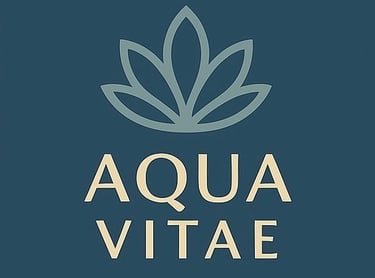Natural Pools vs. Salt Pools vs. Chlorine Pools Comparison
Understand the key differences in health, environmental impact, costs and maintenance between natural swimming pools, chlorine pools, and saltwater pools.
8/18/20252 min ler
If you’re planning to build or renovate a pool in Europe, the conversation has evolved beyond the old debate of chlorine vs. saltwater. Today, more and more homeowners, architects, and hospitality professionals are exploring a third — and far more sustainable — option: the natural swimming pool.
Natural pools (also called biopools) are redefining what it means to swim. Families love them for the health benefits of chemical-free water, while resorts and eco-retreats are turning to them as long-term investments that enhance wellness experiences and reduce operating costs.
So how do they really compare to traditional systems? Let’s take a closer look at chlorine, saltwater, and natural poolsin terms of health, cost, maintenance, and environmental impact.
Chlorine Pools
Chlorine pools disinfect water chemically. While they’re common and effective, they come with a number of well-documented drawbacks:
Respiratory irritation – Chlorine fumes can aggravate asthma and sensitive lungs.
Skin & eye irritation – Dryness, redness, and rashes are common side effects.
Hair damage – Chlorine strips natural oils.
Health risks – Disinfection by-products (THMs) have been linked to long-term health concerns.
For families, this raises understandable worries. For hotels and wellness centers, harsh chemicals can affect guest comfort and detract from a brand’s sustainable image.
Saltwater Pools
Saltwater pools are often promoted as a “natural” alternative, but in truth, they still generate chlorine through electrolysis.
That means many of the same issues remain — plus a few additional ones:
Skin dryness & eye irritation
Respiratory discomfort from salt aerosols
Environmental concerns from salt runoff affecting soil and gardens
Higher corrosion risk for nearby metal structures
For homeowners and hospitality operators alike, that means higher maintenance and repair costs over time.
Natural Swimming Pools (Biopools)
Natural pools take an entirely different approach. Instead of chemicals, they use aquatic plants, biological filters, and UV-C sterilization to keep water crystal clear and naturally balanced.
Benefits include:
Healthier water – safe for children, pets, and sensitive swimmers.
Longevity – liners last 30–50 years or more.
Lower running costs – minimal maintenance and no chemicals to buy.
Design flexibility – from contemporary to naturalistic styles.
Guest appeal – a unique, eco-luxury feature that draws wellness travelers.
Health Comparison
Chlorine and saltwater pools both expose swimmers to chemical by-products that can irritate skin and lungs. Natural pools, by contrast, provide living water — clean, oxygen-rich, and chemical-free — ideal for daily use at home or in wellness-focused hospitality environments.
Considering a Pool? It Might Be Time to Think Naturally.
The Future of Swimming
Across Europe, natural pools are redefining outdoor living and hospitality design. They offer safe, chemical-free water, lower lifetime costs, and effortless maintenance — all while supporting nature, not fighting against it.
If you’re ready to explore what’s possible, we’d love to help.
👉 Contact Aqua Vitae Biopools to discuss your vision. Our team will guide you through the process and help design a pool that fits your lifestyle, your property, and the planet.
Comparison Chart
Experimente o futuro da natação com piscinas naturais.
© 2025 Aqua Vitae. All rights reserved.


